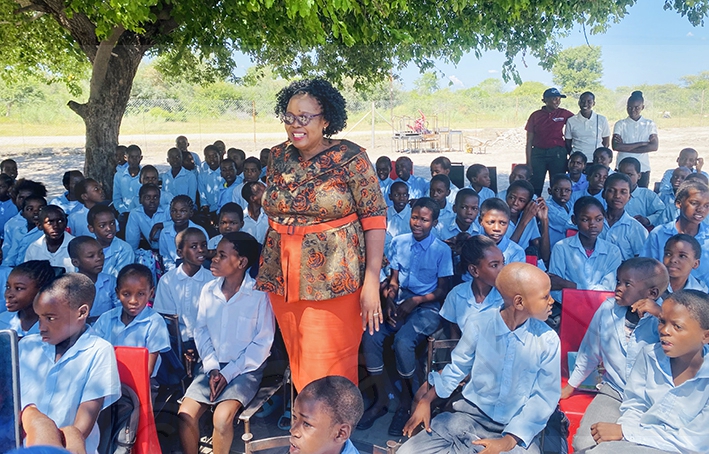Telemedicine Promise fulfilled
13 Oct 2024
In recent years, telemedicine has emerged as a transformative solution for healthcare systems worldwide and Botswana is no exception.
In an interview with the Health Informatics Manager at Sir Ketumile Masire Teaching Hospital, Dr Kagiso Ndlovu said with its unique challenges and opportunities, the integration of telemedicine promises to revolutionalise healthcare access, particularly for remote and underserved communities.
Dr Ndlovu said Botswana faced several health challenges, including shortage of specialised medical personnel, especially in rural areas.
"The distribution of healthcare resources has historically favoured urban centres, leaving many rural residents without access to essential services," he said, adding that the disparity was compounded by the high prevalence of chronic diseases and conditions that required ongoing management and specialist intervention.
Dr Ndlovu added that telemedicine presented a viable solution by bridging the gap between patients and healthcare providers.
"We live in an era of digitally empowered patients, who seek 'anywhere and anytime' diagnosis, monitoring and treatment of their health conditions," he highlighted.
Dr Ndlovu said Botswana had adopted the use of telemedicine, especially with a robust telecommunications infrastructure and increasing smartphone penetration in the market.
He made mention of the Botswana National eHealth Strategy (2020-2024), which advocates for the use of advanced technologies such as telemedicine to improve access to and provision of healthcare services.
He added that the benefits that came with telemedicine included the ability to connect patients with specialists, and hat in areas were specialised care was scarce, patients could consult remotely with experts through scheduled video calls, consequently, reducing the need for travel and minimising delays in diagnosis and treatment.
He further said telemedicine could help track and enable timely interventions and reduce mortality rates.
Furthermore, Dr Ndlovu mentioned that telemedicine empowered primary care providers by facilitating consultations with specialists, adding that the collaborative approach allowed local healthcare workers to enhance their skills and knowledge while providing better care to patients.
"Continuous education and mentorship through telemedicine helps build a more robust healthcare workforce in Botswana," he said.
He also highlighted that telemedicine eliminated many barriers by enabling patients to receive care from the comfort of their homes, adding that it saved costs associated with travelling, including referral as patients could be taken care of at the comfort of their localties.
He also mentioned the financial burden associated with being hospitalised and referred, adding that streamlining operations and cost effeciency could be achieved.
Nevertheless, Dr Ndlovu called for a regulatory framework including the development of a national policy to maximise the benefits of telemedicine.
He further said telemedicine must be cultivated, adding that there could be resistance to change as some patients still believed in physical consultations, adding that it was important for patients to understand how to access services and feel comfortable using technology for their healthcare needs.
Dr Ndlovu said telemedicine held tremendous potential for improving healthcare access and quality in Botswana, adding that connecting with specialists, supporting primary care providers and overcoming geographic barriers addressed some of the most pressing challenges in the healthcare system.
"With the continued investment and commitment to leveraging technology, Botswana can pave way for a healthier future, where quality healthcare is accessible to all, regardless of location and economic status," said Dr Ndlovu. Ends
Source : BOPA
Author : Lesedi Thatayamodimo
Location : Gaborone
Event : Interview
Date : 13 Oct 2024





